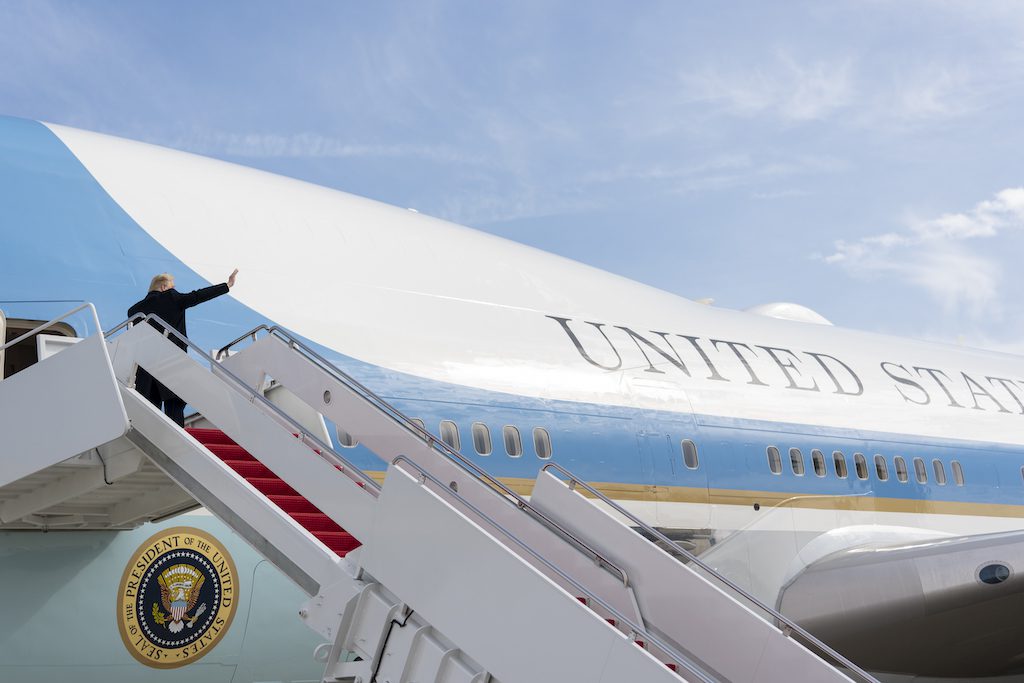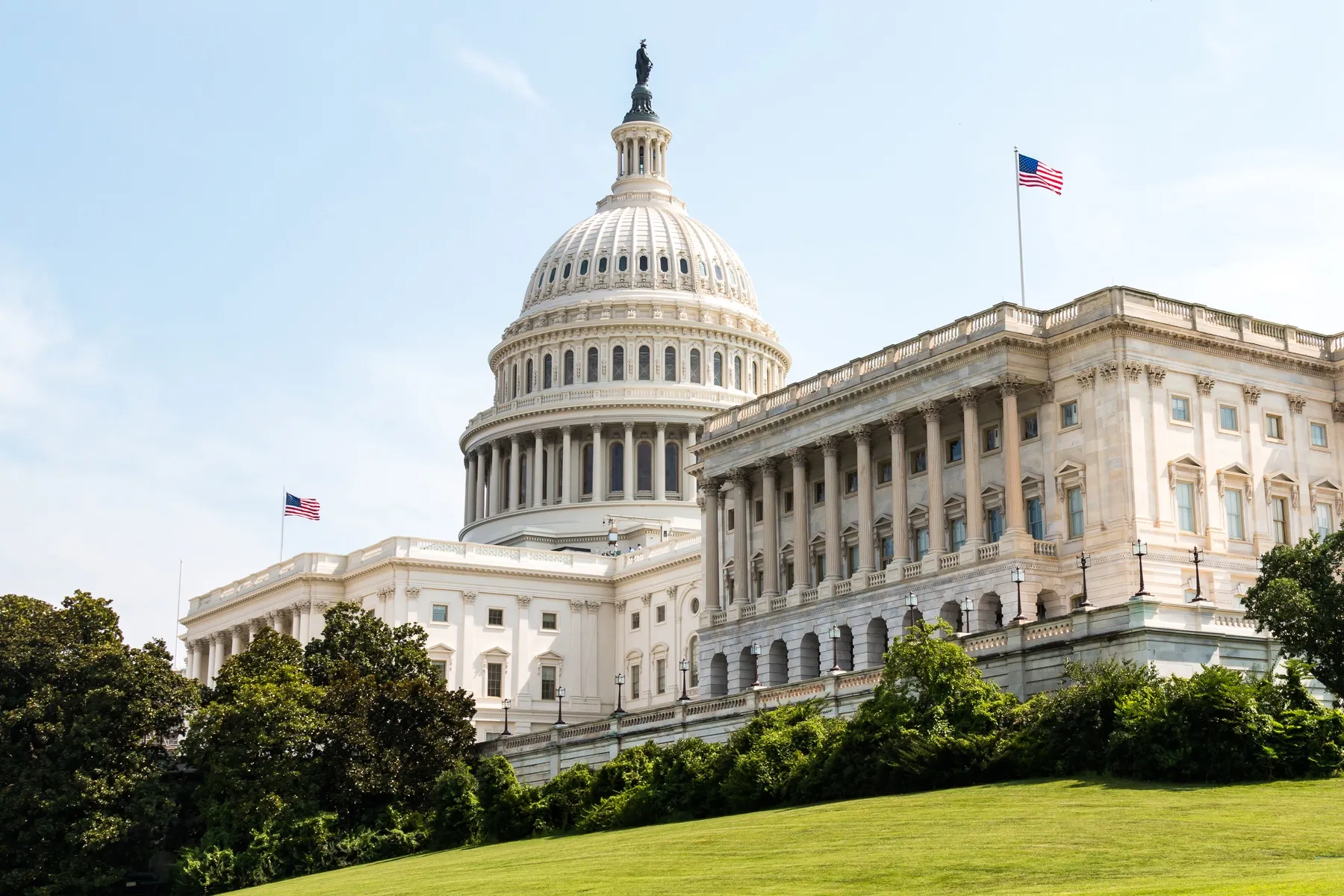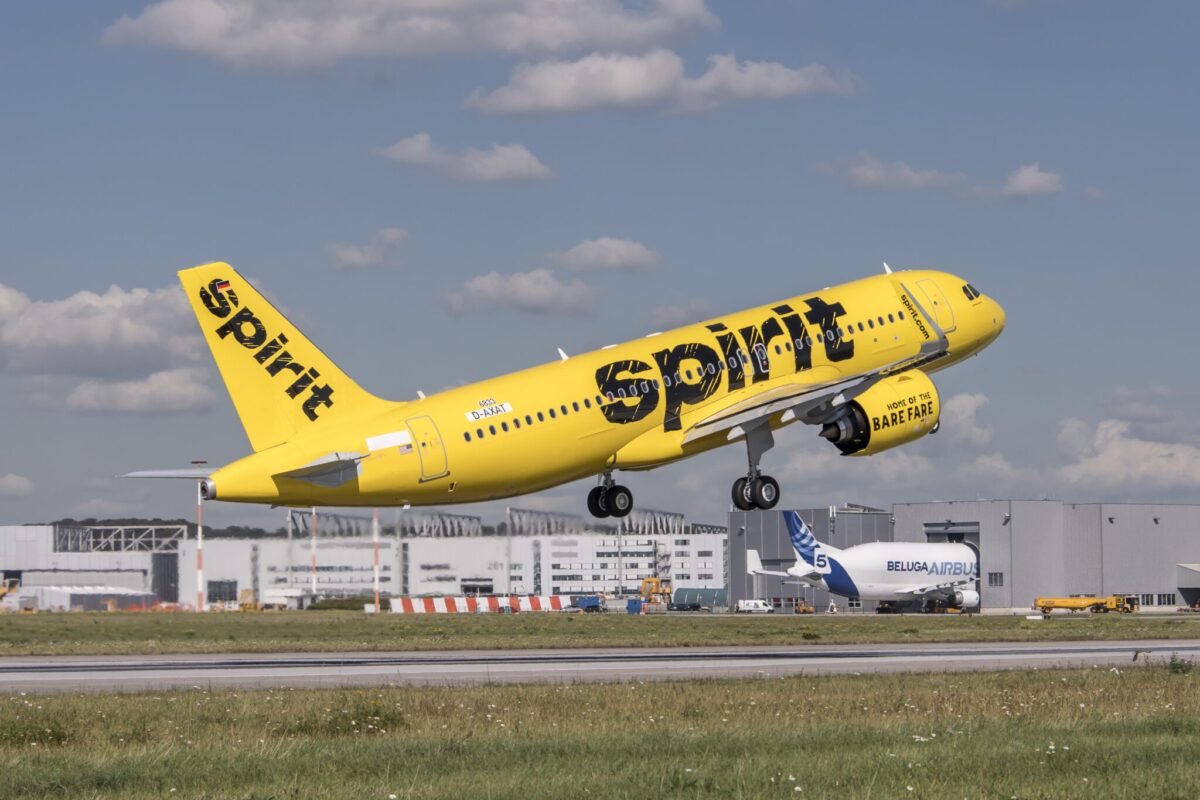Why Do U.S. Politicians Completely Ignore the Travel Industry in Election Season?

Skift Take
As U.S. politicians stump on the campaign trail in anticipation of upcoming elections, they're rarely discussing issues related to the travel industry.
Silicon Valley, autos, health care, and Wall Street are all part of the political debate and policy pitches. Travel, however, is glaringly absent from the dialogue. This gap is something that Skift has been writing and talking about since our launch eight years ago. Travel is one of the world's largest industries by revenue and one of the largest sector employers by head count. And yet politicians essentially ignore it.
It was clear from the start that President Trump was not going to be a friend of the travel industry. While the sector continues to grow, his administration has fundamentally overlooked infrastructure investment while imposing a series of troubling travel and immigration bans.
The hotelier in the White House is walling off the U.S. from Mexico and has banned immigration from a slew of majority-Muslim nations. It's not exactly a strategy that logic would dictate.
Democratic candidates for president, too, rarely address issues related to travel. While they focus on immigration and labor issues, and call for infrastructure investment, they barely mention the travel industry itself.
For all the effort expended by groups like Brand USA and the U.S. Travel Association to have a seat at the table of big business, increasing travel doesn't seem to be much of a priority for either party.
Why can't politicians see travel for the force that it is?
Members of Congress may represent the travel businesses in their states or districts, but no one truly speaks for the travel industry as a whole. The travel industry itself, divided as it is into sectors with different goals, has a difficult time expressing itself. Travel, though, has been perhaps the most dynamic global force behind economic development around the world over the last three decades.
The stories that drive global commerce often intersect completely with travel, like the Trump trade war or the current coronavirus outbreak, yet the discourse rarely includes the recent decrease of long-haul travel to the U.S. The high value of the U.S. dollar is likely as much to blame for the decline as reputational issues stemming from the U.S. government's travel policies.

Let's explore the tension between the international scope of the travel industry and domestic politicians who routinely fail to make travel a priority.
You Forgot The People
Travel has become one of the few experiences shared by people around the world regardless of economic class.
Nearly everyone can relate to the feeling of annoyance as you walk past comfortable first class customers on your way to that cramped middle seat toward the back of the plane. It's almost too on the nose to say the uncomfortable and expensive consumer aviation experience is a metaphor for the state of the world in 2020. The democratization of travel has happened in a time of increased income inequality, though.
Airports and hotels are one of the few places in U.S. society that people of all classes and backgrounds still encounter each other on an even footing. As income inequality has grown and digital technology has removed the need for many to shop or enjoy themselves in public, travel remains a powerful social force in society.
Politicians, though, rarely address issues related to the travel industry or its workers. The only mention of travel in Elizabeth Warren, Joe Biden, and Bernie Sanders' respective policy positions appears in their immigration plans, each calling for a revocation of the Trump travel bans. As it stands, groups related to the travel sector have made the most contributions to Bernie Sanders.
Senator Warren came out over the weekend in support of a South Carolina ruling to protect residents from cruise pollution, for instance, framing a travel industry issue as an environmental one instead.
The U.S. travel industry, meanwhile, is a true global force. Sixty percent of hotel, restaurant, and leisure companies on the S&P Global Broad Market Index, which measures stocks across 50 developing and emerging nations, are U.S.-based. Yet somehow the sector isn't seen as a source of economic growth and soft power by politicians.
What Even Is Travel?
It's easy to break down travel into a few core sectors: aviation, hospitality, tours, and ground transportation. You have to get to a place, stay somewhere, do things, and buy stuff.
This top-level view obscures the fact that once someone is in a new place, they often patronize businesses outside what you'd traditionally consider the travel industry.
In most places, travel is tied inextricably to real estate development: As more people visit a place, they need accommodations, things to do, and places to buy stuff. This class of developers and financiers are usually local, but they're not considered part of a destination's travel community. Yet they reshape communities and contribute to the hollowed-out feeling that can permeate destinations that have recently enjoyed a major boost in tourist visitation.
Airports exert power on the municipal level, as well, but they usually operate on the authority of local governments.
The difficulty of mobilizing the travel industry as a political force comes from the complexity in which assets are organized in different destinations, as well as the reality that the workers who operate inside the travel industry aren't aligned. Hotel workers may have a union, as do some airport employees or flight attendants, but these groups aren't welded together to create a unified political force. The erosion of the political power of U.S. labor unions has a lot to do with this.
Let's take a look at the workforce that powers the U.S. lodging sector, which drew $185 billion in revenue in 2019 according to Deloitte. In 2018, 945,990 people worked in the U.S. accommodations sector, with about half serving as maids or housekeepers across more than 72,000 locations.
In December 2019, accommodations workers earned average hourly wage of $18.51, with the average worker employed 30 hours each week. Just 7 percent of these workers were unionized in 2019, a decrease of 1.2 percent from 2016.
Overall, just 2.6 percent of hotel and food service workers in the U.S. are unionized, according to the Bureau of Labor Statistics.
Aviation is harder to quantify, split up as it is between service workers, technical workers, airport employees, cargo handlers, and airline corporate staff members.
Whatever you think of the particular politics here, the bottom line is that the different sectors of travel are fragmented, with their own specific goals and agendas. Beyond that, each sector has a fragmented group of workers who often clash with executives and leaders who are keen to keep costs down and earn a profit for their investors. Groups of these workers too are divided in their needs and political goals.
This begs the question, for instance, what exactly is the hotel industry? Is it the big boss speaking on Squawk Box, midlevel executives making franchising decisions, developers building the boxes, or the workers who actually operate each hotel? You could ask the same about any sector of travel.
Permanxiety as Cudgel
Stoking xenophobic fears has proven to be one of the most effective methods for conservative political parties to grow popular support in the U.S. and Europe. The othering of people based on how they look or worship has become a prominent part of the political landscape, with the quiet part being spoken out loud constantly. The Islamophobic furor experienced after 9/11 has transformed into a more coded, but institutionalized, reality.
At Skift we call this phenomenon Permanxiety and note that increased travel is one of the antidotes to the fearful, frenzied way we live today.
The recent focus on limiting immigration is ironic because globalization and increased movement of people across borders have led to economic growth across the world. This economic growth, though, has abandoned those in the working class as jobs have been outsourced and an emphasis on digital skills has grown. People are angry that their lives have changed for the worse while politicians channel that anger toward foreign bogeymen instead of their own shortsighted decisions that pushed agendas of austerity.
Immigration is a major issue for technology companies as they seek to attract the smartest and most dedicated workers from around the world. The immigration issue is often framed as a competitive challenge, though, and not a result of the twisted and labyrinthian visa system that governs international travel. Anyone who has moved to the U.S. for work or university knows the constant stress and anxiety that comes from uncertainty surrounding their immigration status.
While destinations often claim they are open for business and marketers push constant appeals to drive visitation, the reality is that the U.S. isn't open for business; it's a walled garden with strict entry procedures.
Working Together
On one hand, you have the U.S. travel industry as a global economic driver and a creator of common ground for people from all different walks of earth.
On the other, industry fragmentation and limits on immigration hold back the sector from asserting too much political power.
Candidates who more strongly align with sectors of the travel industry could not only attract a strong cross-section of voters but also help continue the growth of travel businesses in their districts.
At a time when many politicians want to close off U.S. borders, working with various members of the travel industry is a chance to promote inclusive values not just at home but abroad. Travel is instead used as a wedge issue to promote intolerance and nativism when interconnected global economies stand to benefit from the increased movement of people.
Travel and tourism is a force for not just moral good but economic growth. The sooner politicians work with the industry, the better.




